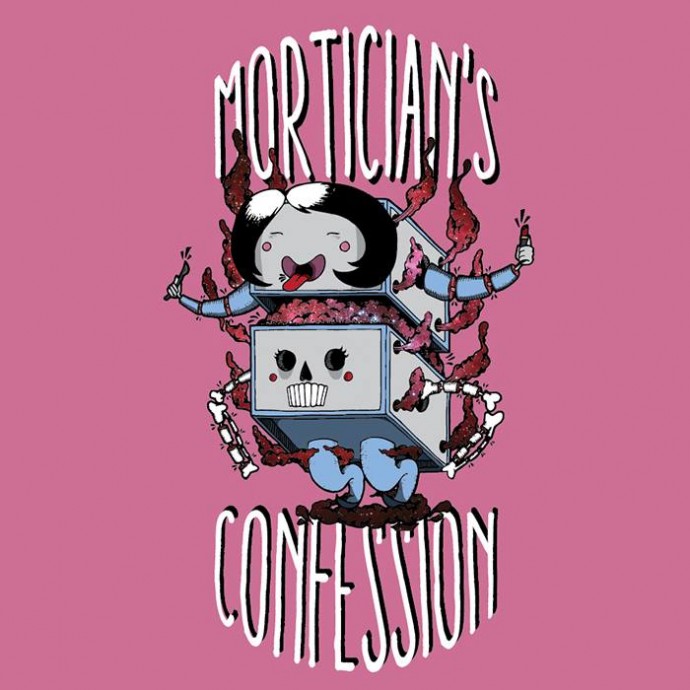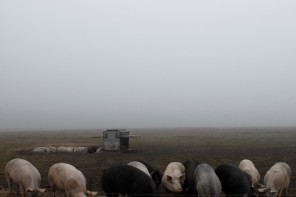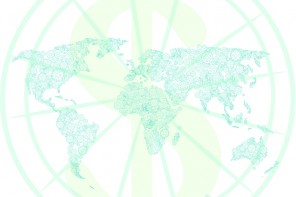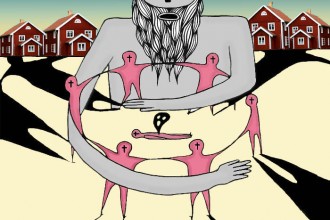Usually customers are human, but for Chi-Chun, a thirty-four year old Taiwanese woman, things are different. Taking dead bodies out of refrigerators, sewing their wounds, and carefully putting make up on them—this was Chi-Chun’s work. She is a mortician who slept in the morgue and faced ‘death’ every day. Now she is the manager of her own funeral company. Looking back, Chi-Chun shares the details of her daily work with Sensa Nostra, letting us experience her unusual life journey.
Five years ago, I was the chef of a Japanese restaurant, and stayed in the kitchen all day with countless pots, bowls, dishes, and plates. When my work finished, the sky was already dark. Day after day, I became totally tired of the routine. On the path to becoming a successful chef, I knew there were only two options: opening my own restaurant, or staying in the same social networking circle, receiving a boring salary paid every month until retirement—which sounded terrible.
I wanted a challenge.
I knew that I wasn’t good at studying and didn’t enjoy it. All I wanted to do was earn money for my family, to reduce the financial pressure on my mum. Therefore, when I saw on the news on that people working in the funeral industry were earning high salaries, this appealed to me.
Honestly, who’s not afraid of death? But it is part of life.
I applied for a mortician job, and got it. During the trial period, my emotions were a mix of expectation and worry, which really made me suffer. My traditional, weak-hearted mom disagreed with my new job, because she thought I would ‘bring people home’ from another dimension (in Taiwan, we call ghosts ‘our good friends’). However, my single-parent family situation made me an independent person from childhood, so in the end my mom had no choice but to reluctantly accept my new job, due to my insistence.
Nevertheless, the reality was totally different from what I had seen in the media. I had to be on 24-hour stand-by, because people can’t choose the day and time they die. People die every day. Once my phone rang, no matter what I was doing or where I was, I had to arrive at the location of a death, the moment that the family members needed me. In this industry, I don’t have time to relax or to spend with my family, even during traditional New Year’s Eve celebrations. My health got worse and worse due to the irregular lifestyle.
At first, I worked in morgues. In Taiwan, bids were usually placed by companies for the right to be stationed in hospital morgues. When people passed away, the hospital would inform the undertakers, who would deliver the dead bodies to morgues. My job was working a 24-hour shift in different morgues, and sleeping there. To be precise, I slept in the morgue itself. Our rooms were only partitioned by a wall from the dead bodies. I cannot describe the atmosphere in words. Even going to the restroom at night became a big challenge. As time passed I gradually became used it. After all, it was my own choice. Facing broken families and death everyday, I needed strong tolerance and a flexible mental attitude.
Then, my office became a mortuary, where I had to do funeral-related work, including applying makeup to the dead, cleaning their bodies, and dressing them up. There were tons of essential details that had to be remembered. For example, I wore special clothes for protection, shoe covers, gloves, masks, booties, a face shield, and prepared alcohol swabs for sterilizing. These were to avoid contagious bacteria from frozen bodies which could cause serious problems for me.
Before working, I would bow and report my name and professional title to the body to show my respect. Then, I cleaned the body, starting with the face: eyebrows, eyes, mouth, and nose, then everywhere else. After wringing out towels soaked in warm water, I had to wipe down the whole body, which would then carefully be put into several layers of grave clothes.
Applying makeup is the last part. Being frozen for days made the bodies lose their water, so the skin was too dark and hard to put makeup on easily. Sometimes ‘incomplete’ bodies took more time, because I had to stitch up their wounds. I saw my ‘costumers’ as my relatives and treated them as gently as I could, because I believed that during the service, they were looking at us from another dimension. I couldn’t see this, but I could feel it. Therefore, I would bow again and say to them, “I hope you are satisfied with my service,” in the end.
Of course, the dead bodies’ conditions were different every time. Sometimes they became putrid, and sometimes they smelled really bad. Frequently, dead bodies due to suicide or car crashes came to the hospital at midnight, and most of them were ‘incomplete’. Every night, those pictures haunted my dreams…
Once, a man was depressed due to long illness and jumped out from the twenty-first floor. His head hit the ground first, which made his skull crack open, and even the brain liquid splashed out. It was in the days when I had just started this job without having any prior knowledge or knowing any rules about it. The only thought in my mind was of terror when I saw it. At the moment this feeling came, my hand suddenly got smashed by the huge refrigerator door, and it bled like a stuck pig! Maybe it was a warning from the dead. Some think it was just a coincidence, but I’d rather believe that it to be true than not. Never think contemptuously or impolitely: this became my philosophy.
Other people’s judgments sometimes hurt me more than the terror. I remember once I was inside an elevator at a hospital. The door opened, and two nurses saw myself and a co-worker wearing black uniforms. They murmured, “Oh, they are funeral servicers,” with fear on their faces. At that moment, I was really upset. Why do people admire white-uniformed doctors and nurses, but ignore us?
Sometimes, the family members of dead people took out their anger and sorrow on us, thinking that we earn money from the dead. But they don’t understand: doctors save living people, but what about those who can’t be saved anymore? Dead people are not garbage or castoffs. They need me.
My destiny is to complete the mission of servicing the end of lives. I’m a ‘life worker’. A few years ago, my dear uncle became a cold cadaver lying in front of me. It was such a torment. But I had to bravely hold back my tears, because a professional mortician doesn’t cry in front of the family members—it makes them sadder. Furthermore, I knew my uncle didn’t want me to suffer due to his death, so I couldn’t let him see my tears.
I maintain positive mindfulness to continue doing this job. I know the value of our work is to help family members get through hard times. From bereavement in the beginning, to letting go, I want to make a perfect ending for the life journeys of people’s beloved parents, spouses, and children. After entering this industry, I realized that nothing is permanent in life. The thousands of bodies and distraught family members that I have dealt with taught me that filial piety and no regrets are much more important than a grand funeral. People should cherish their time and treat others well. After all, life is changing all the time—who knows what will happen in the next second?







